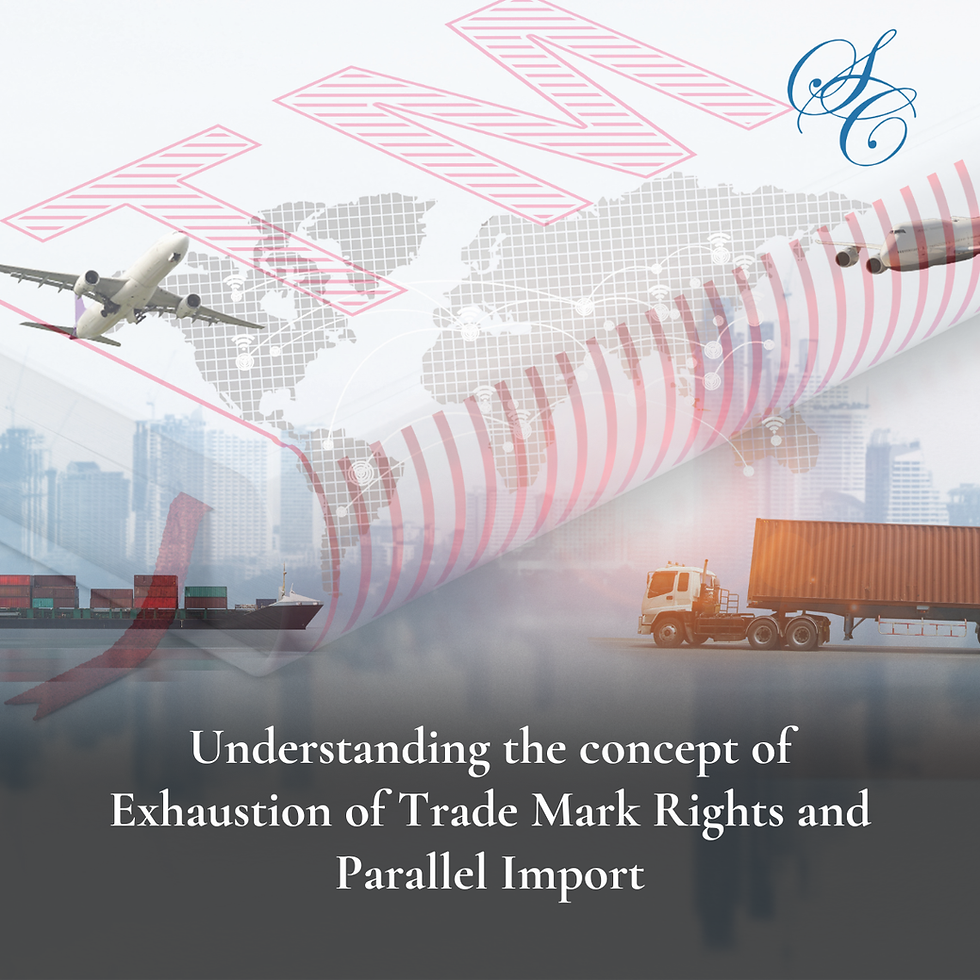Evading Trademark Infringement – The Fair Use Route
- Sarwajeet Singh
- Sep 29, 2017
- 3 min read
A registered trademark is the exclusive property of its owner, and its use by a third-party without the permission of the owner is an infringement of the rights of the trademark owner. However, this is not a blanket rule. There may be instances in which unauthorized use may not constitute trade mark infringement. In particular, unauthorized use may be permissible if it constitutes fair use of the trade mark in question.
Fair use may be of different kinds. Descriptive fair use means use of a trademark to describe goods or services, as opposed to use as a trademark to indicate the source of the goods or services. For a defence of descriptive fair use to prevail, it must be proven conclusively that there is no intention to derive any association with the registrant or use the term in question as a source identifier. For example, in the case of ICC Development (International) Limited v. Arvee Enterprises, 2003 (26) PTC 245 (Del), the Court ruled that the use of the words ‘world cup’ and ‘world cup cricket’ by the defendants constituted descriptive fair use since there was no intention to derive any association with the ICC or use ‘world cup’ in a manner of trademark significance.
Another kind of fair use is nominative fair use. Generally speaking, to prevail in a defence of nominative fair use, it is necessary to show the following: the product must be one not readily identifiable without the use of the trademark, only so much of the mark may be used as to reasonably identify the product, and the user must do nothing that would suggest sponsorship or endorsement by the trademark holder.
The nominative fair use defence can be utilized in cases where a trademark is used in order to refer a trademark owner or its goods or services for purposes of reporting in a news article, commentary on the television or radio, in cases of a healthy criticism, and parody, as well as in cases of comparative advertising.
Parody and fair criticism, another subset of nominative fair use, as a defence was recently examined by Indian courts in the case of Tata Sons v. Greenpeace, 2011 (45) PTC 275 (Del). In this case, Tata Sons had initiated an action for infringement of their TATA Design mark and the T Circle Design mark against Greenpeace International. Greenpeace had released a game which depicted turtles being chased by the TATA Design mark. The game used the TATA Design mark and the stylized version of its T Circle Design mark. The game was based on the intent to raise awareness on the alleged adverse impact of the Dharma Port Project on Olive Ridley turtles. The Court held that the use of a trademark as the object of critical comment, or even attack, does not necessarily result in infringement. If the third-party’s intention is to focus on some activity of the trademark owners, and is denominative and drawing attention of the reader or viewer to the activity, such use can prima facie constitute due cause, which would disentitle the plaintiff to a temporary injunction. The court ruled that Greenpeace’s use of the TAT Design and the T Circle Design marks was clearly denominative and considered fair use.
Fair use, especially nominative fair use such as use in parodies and fair criticism, as a defence appears to be an evolving concept in India as compared to the West. Indian courts currently appear to be mindful of the resources invested by the registrants while considering defences of fair use. Nonetheless, brand managers should be conscious that such a defence may be taken by defendants in order to escape the penalty of infringement.




Comments